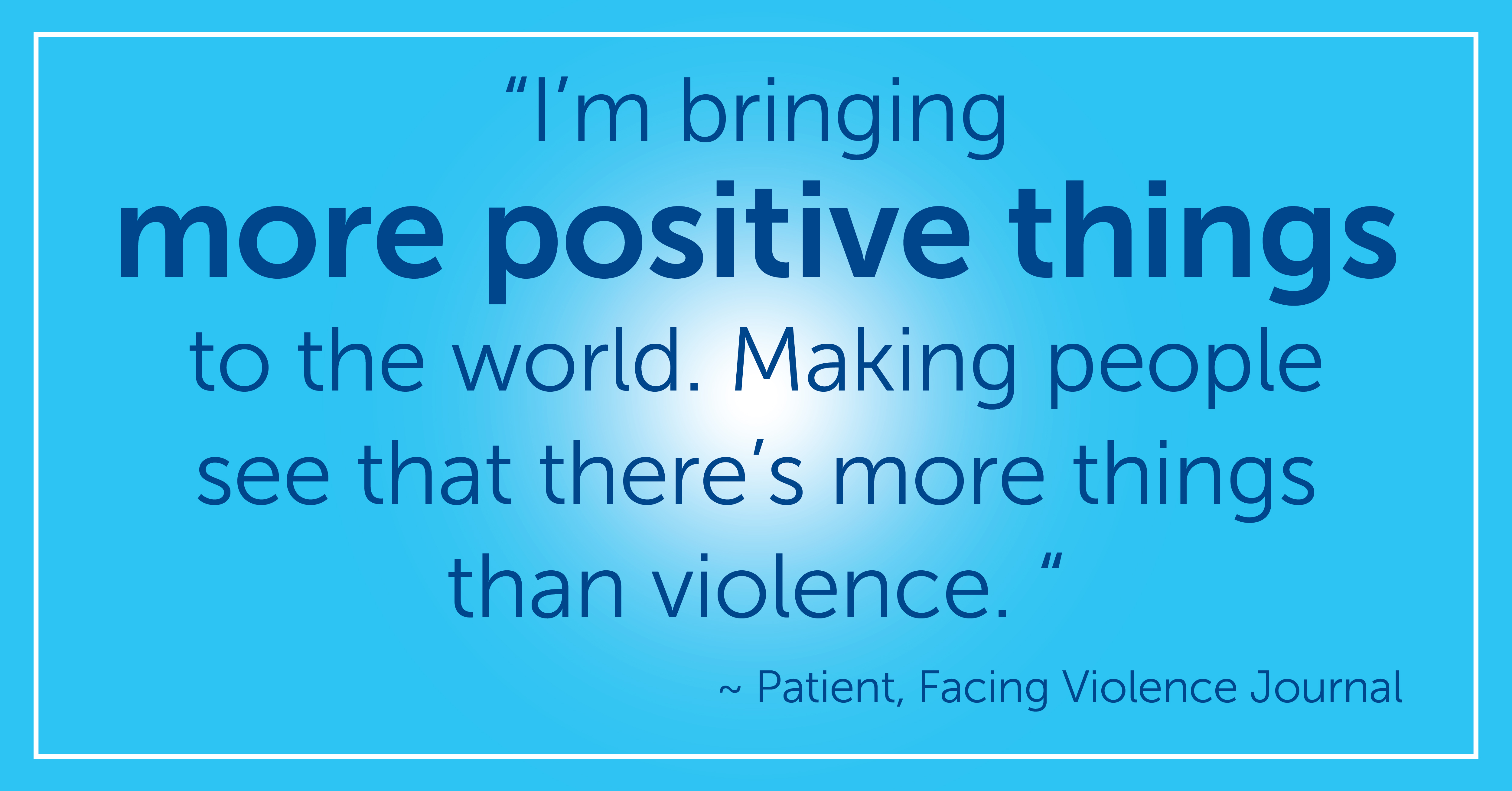
The Facing Violence Experience Journal is a collection of personal stories about living with violence in the community. It represents the “collective wisdom” of young people, families, community members, and healthcare providers. While each experience is unique, contributors explore some common thoughts, feelings, and challenges associated with experiences of community violence.
While there may be some emotional discomfort associated with reading candid discussions of experiences of violence, we hope that readers learn from the stories of others in similar situations.
The goal of the Facing Violence Experience Journal is to facilitate the strength and resilience that lies in every young person, family, and community facing adversity.
Additional support around community violence can be found on our Resource page.
Video Interviews:
Videos cover the following questions:
- What should adults look for in children exposed to violence?
- How has community violence affected children and adolescents?
- What are some common misconceptions about violence?
- What should educators watch for in children exposed to violence?
Interview with Suffolk County District Attorney, Dan Conley
Youth Stories:
I think people need to step up. If you know something, you should say something. You could be anonymous, you could give a tip, or you could call it into a hotline.
- The roots of violence
- Understanding stereotypes
- Dealing with gangs
- Losing someone to violence
- Reactions to violence
- Coping with violence
- Promoting peace and preventing violence
- Advice for adults
Caregiver Stories:
You can’t just talk to kids, because they’re watching you. You can say, “Okay, this is the way it’s done,” but if you’re doing it the wrong way, they’re going to do it the wrong way because that’s what they’re seeing you do. So, you have to do what you say. You have to be an example to your kids.
- Understanding stereotypes
- Keeping my children safe
- What I tell my kids
- Caregiver reactions to violence
- Child reactions to violence
- Coping with violence
- Promoting peace
Clinician Insights:
It is so important that we give young people examples of the ways that they can be powerful and the ways that they can show respect through peace.
Colby Swettberg, EdM, LCSW
- Our clinicians and community leaders
- How adults can support children
- Talking to youth about violence
- Importance of role models
- Helping others cope with violence
- Stereotypes about community violence
- Understanding the roots of violence
- How we react to violence
- Provider self-care
- Promoting peace in the community
This journal was made by the Children’s Hospital Neighborhood Partnership (CHNP) at Boston Children’s Hospital. A group of community members and health care providers reviewed these contributions for appropriateness.
Editor’s note: Please keep in mind that every child, adolescent, and family is different, and discussions of feelings, emotions, and challenges may not apply to you. The Experience Journals do not endorse any specific treatments or methods. Each individual is different, and we invite you to discuss treatment with your healthcare providers to see if what is right for you.
